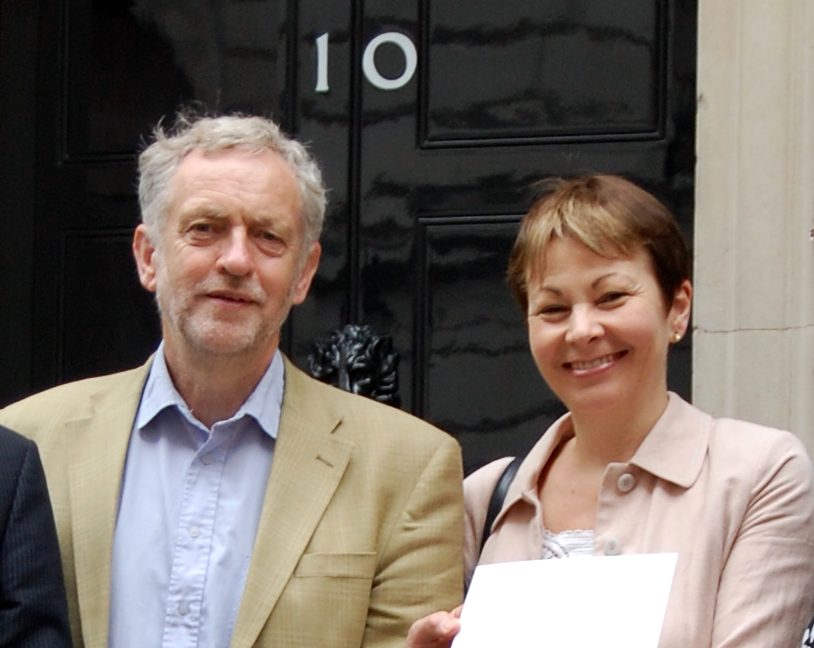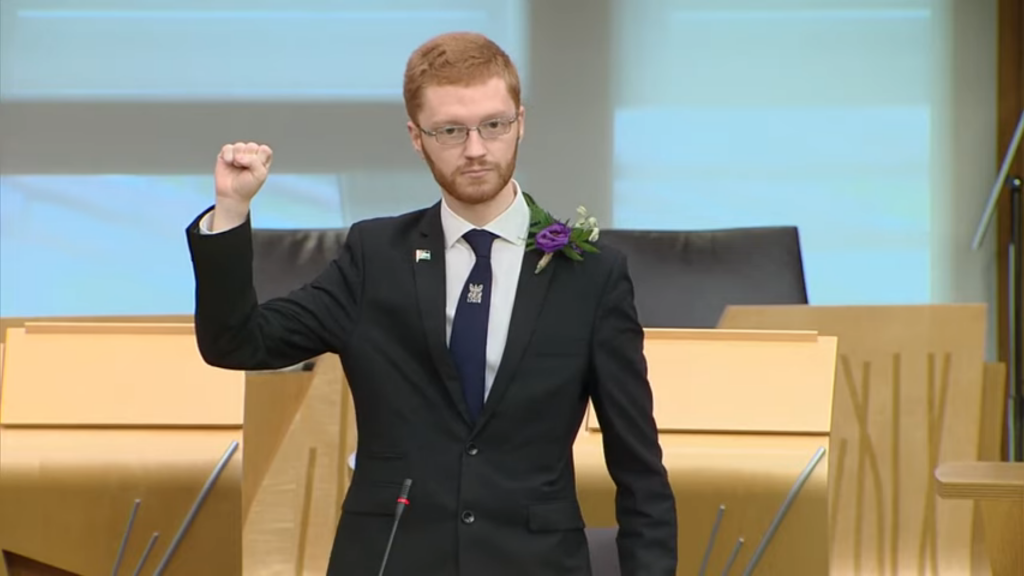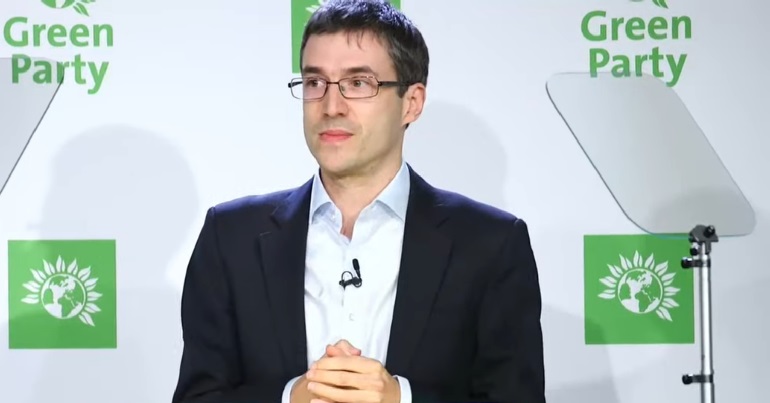Only Pluralism Can Save Us Now

This article is part of Bright Green’s ‘Labour or Green?’ series- if you’d like to contribute to this series, please send a draft to front-desk@project1-hvznj9e2s8.live-website.com
The call for the Green Party to down tools in favour of the Labour Party is probably as old as the Green Party itself. Of course since Corbyn’s rise those calls have become more fevered. It’s time to realise those siren calls are damaging for both the Labour Party, the Green Party, the environmental movement & the broader left.
Corbyn’s sudden rise to the Labour leadership was both unexpected and unheralded. It seemed entirely likely that the same soft left milquetoast vision of the world espoused by Ed Miliband was to be carried on by Andy Burnham. The takeover of Labour by its almost dormant radical left was entirely novel and not reflective of the radical left’s fortunes in Europe. There instead new parties of the left arose supplanting tired third way social democratic parties.
After a year of Corbyn’s leadership it is entirely clear why radicals in Europe started new parties, rather than try hostile takeovers of existing parties.
Corbyn’s first year has been littered with savage infighting, brutal attacks on the leader and a struggle to communicate a clear message to the electorate. Instead of articulating a clear anti-establishment and radical message (that so fired up Greeks & Spaniards) Corbyn has spent most of his time dealing with the anguish inside the Labour Party.
Back in 2015 Corbyn was meant to be the token lefty who lost badly in the leadership election. Abbott had ran in 2010, it was his time to lose. Even when it became clear Corbyn was to win the election he and his team seemed ill prepared. It hasn’t improved and Corbyn has disappointed as a leader. A principled man perhaps, but not charming, engaging or electrifying like Tsipras or Iglesias. At too many opportunities he’s given his enemies ammunition, alienated allies and failed to communicate his own vision.
Fundamentally the radical left has gone all in on a poor hand. A shaky political vehicle, a damaged leader and no cohesive message does not bode well for the next election. If the Corbyn project fails we risk disappointing a generation of radicalised activists and the perhaps inevitable handing back of the party to a now rather smug and galvanised moderate wing of the Labour Party.
For any Green wanting to sign up to switch ship to the Corbyn project there’s fundamentally somethings they must take into consideration.
Firstly simply joining is not enough. The Labour membership is full of people joining “to support Corbyn”, but passively paying fees is not enough to keep the Corbyn project afloat. Corbyn’s opponents hold many positions of power and regularly use them against him. Radicals must realise that much of their political energy will be sapped by bitter rancorous infighting and political obstructionism. If there is life after Corbyn the party will need radical reform in it’s internal democracy and processes. For any activist the next few years may be an inward facing time. For me as a campaigner it’s not something I can spend my limited time or energy on.
Second is the lifeboating issue. If Corbyn fails and the Labour Party goes back to bland centrism where is the next natural home for radicals? If the Green Party has folded radicals might have to spend their time reinventing a new party (potentially Momentum?). Or else go back to waiting their time to takeover their party with echoes of Foot & Corbyn in their ears.
Next is an issue of pluralism. Caroline & Natalie have not been shy of supporting Corbyn when he gets it right, refugees as one example. In the face of a hostile media and an incredibly reactionary right it has been a boon to have more than one party leader speaking up for inclusivity and progressive values. An end to the Green Party would see Corbyn’s Labour even more isolated.
Tied in with this is sometimes the need for constructive criticism. Because the fate of the radical left is so intertwined with Corbyn’s fate many activists have assumed a near constant defensive position. Any criticism of Corbyn is responded to with immediate bombast (indeed I expect this article to generate some). The problem is sometimes Corbyn does get it wrong. When it comes to the EU, reopening the coal mines or wider campaigning and messaging Corbyn does need constructive criticism. When his leadership team seems to be in bunker mode, under siege and wobbling, there seems little space in the Labour Party for sensible constructive criticism. The two options seem blind hagiography or intemperate rage.
The Green Party can and should hold Labour to account, on both the environment and social justice. This is particularly true on a local level, where many Labour councils continue to disappoint. There is a huge difference between say Islington Labour and Lambeth or Newham Labour. Not every council is infused with Corbyn style politics. But all of them could use a local Green Party that holds the party to account.
Another issue is the widening disparity of the UK electorate. The EU referendum clearly highlighted the huge gulf between Labour’s metropolitan seats and the seats it holds elsewhere. Having campaigned myself in the referendum I saw the huge disparities in community’s concerns in different areas around the country. The Labour electorate is an increasingly fragile coalition of voters who often have different concerns and do not speak the same language or understand how to engage each other. It’s a trend across Europe where the cornerstones of social democracy (Trade Unions and strong local communities) have broken down.
How does Labour appeal both to UKIP-Labour-Conservative switchers and Labour-Green-Lib Dem switchers? The resounding answer thus far is it cannot. A narrative that captures both a core working class vote and a generation of young radicals drawn to the new left has been beyond most parties. I fundamentally do not believe the Labour Party can win a national election by becoming the Green Party. I do believe a radical party can win a general election but it does need a different tone, a different focus and a different style.
In European countries with sensible electoral systems this is how progressive majorities are won. Coalitions of liberals, Greens, social democrats and socialists win a broad base of support. Under this FPTP with our current electorate Labour has never looked further from a majority. Strategically Labour needs to reconnect with its core working class vote, something which all factions of the party seem clueless as to how to achieve. Aping UKIP will not do it. Nor copying the Greens. Labour desperately needs an authentic radical narrative to stop its core working class vote drifting to Ukip or the Tories.
This is where a progressive alliance is most needed. Unless the widening disparity between communities can be staunched (and indeed that will take a progressive government elected first) the electorate needs more than one progressive party. It needs a liberal and a Green Party to connect to seats where an authentic working class Labour message won’t carry & vice versa. The current polls certainly point to the idea that Corbyn cannot win a majority alone.
Our politics also needs a party who will (as well as promote social justice) fight for the environment. Climate change should be seen as the number one crisis our country faces, yet even the radical left has not done enough to address the issue.
There’s also clear evidence that there is still electoral appetite for the Greens. The party has remained solid in the polls at 4-5% and Corbyn has not squeezed that vote. In some areas of the South West and South East, where Labour branded politics have never caught on, the Greens have proven themselves as the most viable vehicle of progressive politics. Defeating the Tories will take a coalition of liberals, Greens & nationalists. (Though the Lib Dems really need to decide where their politics lay, are they progressive? Will they ever prop up a Tory government again? I’m deeply uneasy about stepping aside for a Lib Dem to then see them enter into coalition with the Tories again).
Crucially getting this reactionary and oppressive Tory government out as soon as possible is vital. It’s something everyone from Europhile liberals, to environmental campaigners to lifelong trade unionists feel. As a broad coalition with a commitment to proportional representation and progressive politics we can defeat the Tories. The belief that Labour alone can carry us over the line is outdated and unrealistic. We need to work together, but Socialism in one party is old hat. Only pluralism can save us now.




The only part of Benali’s analysis with which I would disagree is the idea that The Green Party is facing some kind of existential crisis and is likely to ‘fold.’ It might seem like that to those who insist that we are purely a socialist party, and who have seen some of those with similar opinions go corbynista, but the quiet majority who have always embraced pluralism will continue to grow the party. We will be ready to welcome returnees should they find life in the Labour Party to be less comfortable than they imagine.
I respect the eco-socialist tradition within the party, but if some individuals decide that they are more socialist than eco, and feel the need to rally to Corbyn’s flag, I wish them well. As Benali says, “the electorate needs more than one progressive party.” It needs a proper socialist party (as well as social democratic and green parties) and if that can be created from the ashes of Labour, all well and good. But Benali is right again when he say that “simply joining is not enough.” In Bristol we have seen former Greens joining Labour to support Corbyn, without realising that they are helping to elect exactly those people who have been trying to get rid of him! People going to Labour need to do so with their eyes open and taking with them the values they have developed as Greens, working to make Labour another party for the environment, challenging growthist orthodoxies and helping to counteract the rampant tribalism we have so often seen.
The Green Party has its principles and its policies, and these will not change. But if the departure of corbynistas means that we are able to speak in a less strident tone, emphasising the enlightened self-interest that will be required to deal with climate change, I think that will prove more attractive to the vast swathes of voters we need to defeat the Tories. Most people favour one side of the political fence or the other, and not many change sides. They stick with the one they think best serves their sectional interest and will dismiss out of hand the arguments of the opposition. The prospect of environmental catastrophe is one thing that could jolt people out of their long-held assumptions. Once it is accepted that we need to change to survive, people will look afresh at our social justice agenda and see that it is all of a piece with the policies that we need to save our society.
“It needs a liberal and a Green Party to connect to seats where an authentic working class Labour message won’t carry & vice versa.”
What is an ‘authentic working class Labour message’ & what is it about Liberals or Green policy that won’t carry?
Tim Farron has said on a few occasions that he would form a coalition with the Tories again with electoral reform on the table. I think we need to be aware that’s perhaps the most likely result of our electoral pacts, so electoral reform would be the aim, and saying it’s to ‘get rid of the Tories’ is contradictory, in the short term anyway. I’m not saying I agree with that – I’m just saying… And I know local Labour parties have shown interest in not standing candidates, but they’re a top down party so until it’s permitted they can’t join in – which does make it us and the Lib Dems, us enabling them to form a coalition with the Tories. That may be the long game to electoral reform and I’m certainly not saying I’ve decided whether or not pacts can work.
If we are asking the question of “how do we get rid of the Tories ? “ We need to ask in what ways are the Tories vulnerable ? Vulnerable to losing the electorate’s confidence ?
I think there are at least two main ways in which they are: (a) the Brexit mess and (b) the mess they are making of public services & lives of “ordinary” citizens dependent on those services.
So we should be targeting these two things to re-enforce the impending decline in the May government’s standing.
Brexit is and will continue to give the Tories serial problems and two of the Brexit ministers,Johnson and Fox , are sitting ducks as liabilities. One big factor that may persuade people to significantly desert the Tories is likely to be when their cost of living takes a big hit because of the declining value of the pound arising from Brexit.
The damage to public services such as social care, housing provision etc. is being done by a government based on far, far less than 50% of the popular vote. We need to highlight the illegitimacy of action being undertaken for the sake of the wealthy based on a voting system which is unrepresentative of the people.
When I say “we” , ideally this is where as much of a common voice across the Lib. Lab. SNP. Plaid and Greens would actually be useful.
I’m not sure the Tories are vulnerable on Brexit: that’s what the country voted for and T. May is delivering it (or delivering something).
Any shortcomings that stem from the deal we get on Brexit will probably only become apparent some years down the line, not immediately.
Socialism is old hat. You’d do well to look at where Greens sit on the political compass
Benali, I completely agree with you on the main ideas within this article although I think we need to approach the Corbyn-led Labour Party with a new found respect as they have pulled off something that is rather remarkable at the cost of a lot of difficulty. If we are to work towards a progressive alliance we need to keep our independence while at the same time recognising the strengths of the other would-be progressive alliance partners and understand that their internal battles were worth fighting instead of looking upon them with disdain. For example, I don’t see the rise of the Corbyn wing in Labour as a hostile take-over as I have dear friends who have fought that battle within the party for decades, instead I see it as the correction of a misguided policy direction that started with New Labour. I do think that we Greens have a unique take on politics all over the world – including here in Eastern Europe – and need to keep our identity. I am less excited about people swapping parties, since I think it helps to stay and fight fights where you find yourself rather than chop and change and thereby diminish your power to address and influence difficulties. But I am aware that you may have a different view on all this from inside the GPEW and that by geographic necessity I am a bit of an outside observer right now.
Love this article. It seems so sensible and reflects a lot of what I feel. Anyone who thinks that the Green Party is unnecessary because of Corbyn being elected Labour leader is ignoring Hinkley, Trident, Heathrow and the snoopers charter.
Does PR need a mention? Getting the Labour Party to adopt PR would be the biggest indicator that it has dumped tribalism in favour of pluralism.
But of course you’re “working with” the Lib Dems in Richmond against Zac Goldsmith (correctly, in my view) and Labour have completely ignored the idea of a progressive alliance and chosen the rather weird Christian Woolmar.
I’m not sure why any genuine progressive would want to have anything to do with the Labour Party and its appalling dinosaurs like Kate Hoey, Gisella Stewart etc unless there was a particularly worthy candidate in their area.
We need to co-operate with Labour and the LibDems if we are to get rid of the Tories in 2020. We can’t pick and choose where we co-operate: it needs to be an electoral pact across the whole of England (different considerations apply in Scotland and Wales).
>We need to co-operate with Labour and the LibDems if we are to get rid of the Tories in 2020. < Seems to me it is Labour and particularly Corbyn who has to cooperate with us and the LibDems by putting PR in their manifesto and developing a joint vision we can all (well nearly all) fight for at the next election, eg PR, green deal,devolving power and tax powers to councils etc. Though my wife is a strong supporter of Corbyn, blaming the media, as Banali has opined Corbyn has not impressed me so far, particularly of late. Perhaps because of internal Labour diplomacy he is treading carefully but there is not much more time for him to make a stand imv. Without cooperation with Greens , Plaid and Libdems and describing a vision that will inspire I think Corbyn and Labour will quickly collapse into its former tory lite.